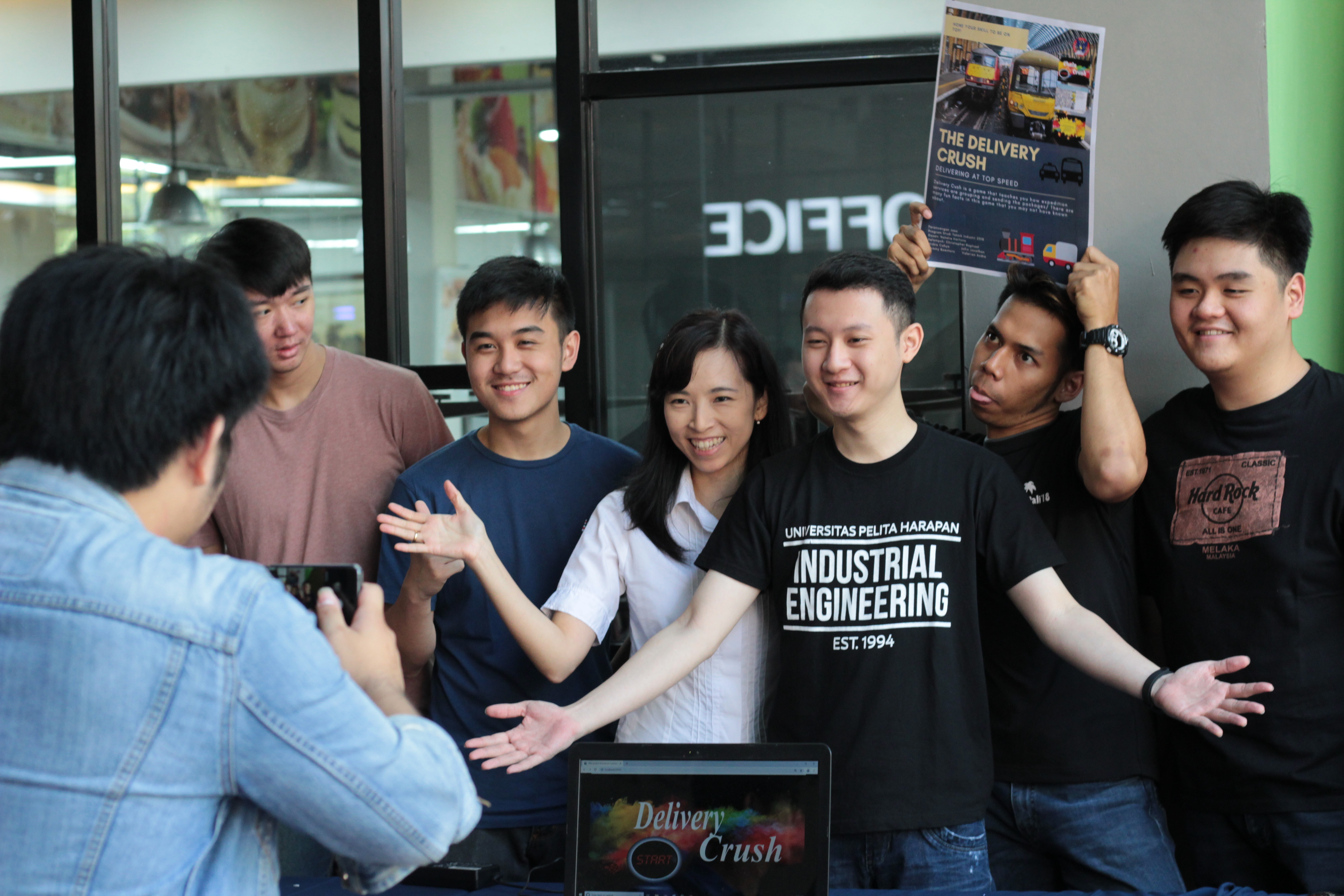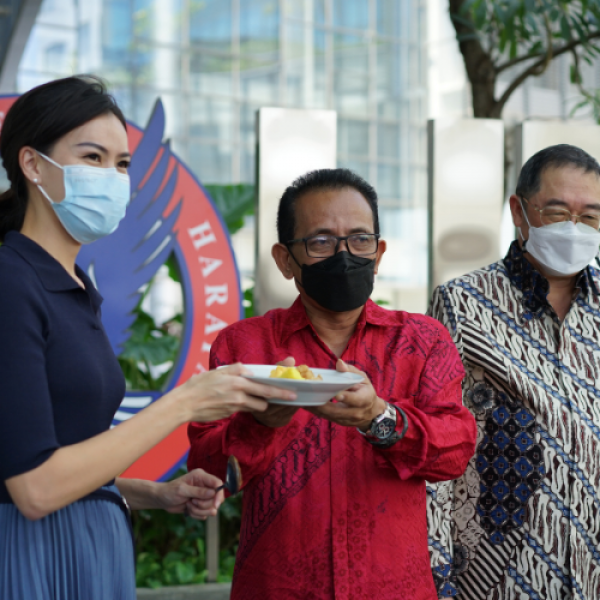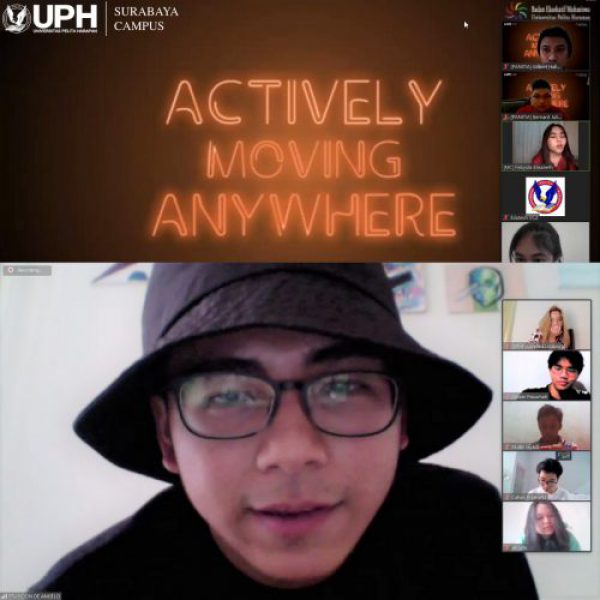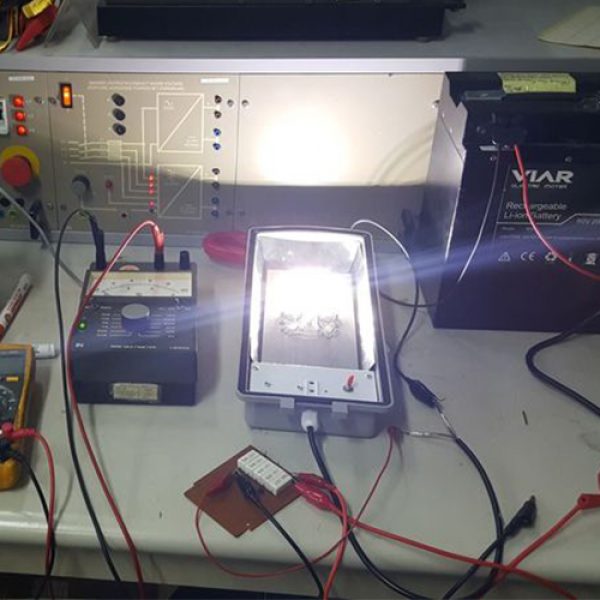2025
Teknik Industri UPH Pamer Karya Mahasiswa dalam Bidang Service & Product Design.

Dunia industri sebenarnya tidak melulu tentang pabrik dan manufaktur. Cakupannya bahkan sangat luas hingga ke bidang pengelolaan jasa. Dalam hal inilah teknik industri berperan untuk pengoperasian perusahaan serta memperbaiki sistem di dalamnya. Sebagian masyarakat yang tidak mengetahui hal ini mungkin beranggapan bahwa teknik industri adalah ilmu yang kaku dan membosankan.
Program Studi (Prodi) Teknik Industri Universitas Pelita Harapan (UPH) memberi sudut pandang baru tentang anggapan tersebut. Melalui exhibition mata kuliah Service Design (Perancangan Jasa) dan Product Design (Perancangan Produk) yang dilakukan Mahasiswa Teknik Industri UPH, tercermin sisi lain teknik industri yang fun dan bisa dinikmati semua kalangan. Ini terlihat dari hasil karya mahasiswa yang berbentuk game digital dan produk jadi.
“Exhibition ini adalah salah satu cara Prodi Teknik Industri UPH untuk memperkenalkan bidang keilmuannya kepada khalayak yang kebanyakan masih awam tentang dunia teknik industri,” terang Natalia Hartono, dosen pengampu kedua mata kuliah tersebut.
Exhibition ini diadakan pada Jumat, 16 November 2018 di Lobby Gedung D UPH Lippo Village. Melalui mata kuliah Perancangan Jasa, mahasiswa angkatan 2015 diajak untuk membuat game yang bertemakan otomasi industri. Otomasi industri adalah pemanfaatan sistem komputer guna mengendalikan mesin industri yang sebelumnya dioperasikan oleh tenaga manusia. Lewat pembuatan game ini, mahasiswa diajak untuk membuat desain komunikasi untuk jasa, serta mengelola penyampaian jasa tersebut. Tujuannya agar setiap mahasiswa mengerti tentang proses pertukaran dan konsumsi barang dan jasa dalam operasi perusahaan.
Sedangkan pada mata kuliah Perancangan Produk, mahasiswa angkatan 2016 membuat produk atau barang berdasarkan mekanisme automata yang menjadi bagian dalam keilmuan teknik industri. Automata adalah barang atau produk yang mempertunjukkan rangkaian gerakan otomatis. Melalui mata kuliah Perancangan Produk, mahasiswa menjadi mampu mendesaian produk dan menggunakan prinsip ergonomi untuk mengevaluasi suatu produk.
Sebanyak sembilan kelompok memamerkan game ciptaan masing-masing yang bisa dimainkan oleh para pengunjung yang hadir. Salah satu kelompok membuat game dengan nama Hotelpedia. Berkonsep sebuah proses booking hingga checkout di hotel secara online, game ini dibuat dengan Microsoft Office PowerPoint dengan tampilan menarik. Pada game ini terdapat 10 level tantangan yang mengasah logika berpikir dan kemampuan mengingat. Pada setiap akhir levelnya, akan ditampilkan teori yang telah diberikan selama proses perkuliahan Perancangan Jasa.
“Kami ingin memberikan gambaran sebuah otomasi di hotel yang sudah berbasis online. Meskipun begitu, tetap dibutuhkan peran manusia sebagai pengawas dan pengendali utamanya,” ungkap Ansera Junisia, salah seorang anggota kelompok game Hotelpedia.
Ditambahkan pula oleh Ricky Roy Geofanny, anggota kelompok lainnya, bahwa ide game ini berasal dari game Dumb Ways to Die Original yang dipadukan dengan hasil pengamatan pada Hotel Kapsul di Surabaya. Dalam game ini, mereka menerapkan cara mengelola proses jasa dan perencanaan lingkungan jasa.
Di samping itu, ada pula tujuh kelompok mahasiswa yang menghasilkan produk pada mata kuliah Perancangan Produk. Yang menarik, produk-produk tersebut harus dibuat dari barang bekas.
“Awalnya mereka harus mengumpulkan suara konsumen terlebih dahulu. Dari situ mereka harus membuat produk menggunakan tools ‘House of Quality’ dengan komposisi bahan minimal 50% terbuat dari barang yang telah dibuang. Tujuan kegiatan ini agar mahasiswa bisa menerjemahkan suara konsumen menjadi produk dengan menerapkan teknik industri,” ungkap Natalia.
Salah satu produk yang ditampilkan adalah meja bernama ‘Melisa’ yang terbuat dari kayu. Yumeling, salah seorang anggota kelompok pembuat produk ‘Melisa’ (Meja Lipat Serba Guna) menuturkan tentang produk buatannya ini.
“Kami melihat di lingkungan terdekat kami, kebanyakan saat kerja kelompok di kos teman, kami harus meletakkan laptop di pangkuan karena tidak ada meja belajar. Jadi kami membuat meja dari beberapa potongan kayu dan engsel bekas pakai, tapi bukan sekadar meja biasa. Meja ini bisa dilipat dan multifungsi sehingga bisa dikatakan memenuhi syarat ergonomis. Bisa berfungsi sebagai meja tempat meletakkan laptop lengkap dengan speaker nya, juga ada tempat menaruh handphone, air minum, laci ATK (alat tulis kantor), dan tempat buku,” ungkap Yumeling.
Lain lagi dengan produk bernama ‘Kluis’ yang terbuat dari perpaduan kayu dan kardus bekas. Dalam bahasa Belanda, ‘kluis’ berarti safety box atau brankas. Produk Kluis ini berupa funding machine sederhana yang ditujukan bagi orang tua yang ingin mengajarkan konsep menabung pada anaknya.
“Konsep kerja Kluis adalah memasukkan uang koin yang bahannya bisa menghantarkan daya untuk menyalakan baterai. Baterai itu akan menyalakan dinamo yang bisa membuka lubang sehingga mengeluarkan coklat/permen yang telah dimasukkan sebelumnya ke dalam mesin ini. Di situlah letak prinsip automatanya,” ungkap salah seorang anggota tim pembuat Kluis.
Melalui kegiatan ini, Natalia sebagai dosen pengampu berharap, baik game digital maupun produk barang yang dihasilkan bisa membuat semakin banyak orang yang mengenal Prodi Teknik Industri UPH. (it)



